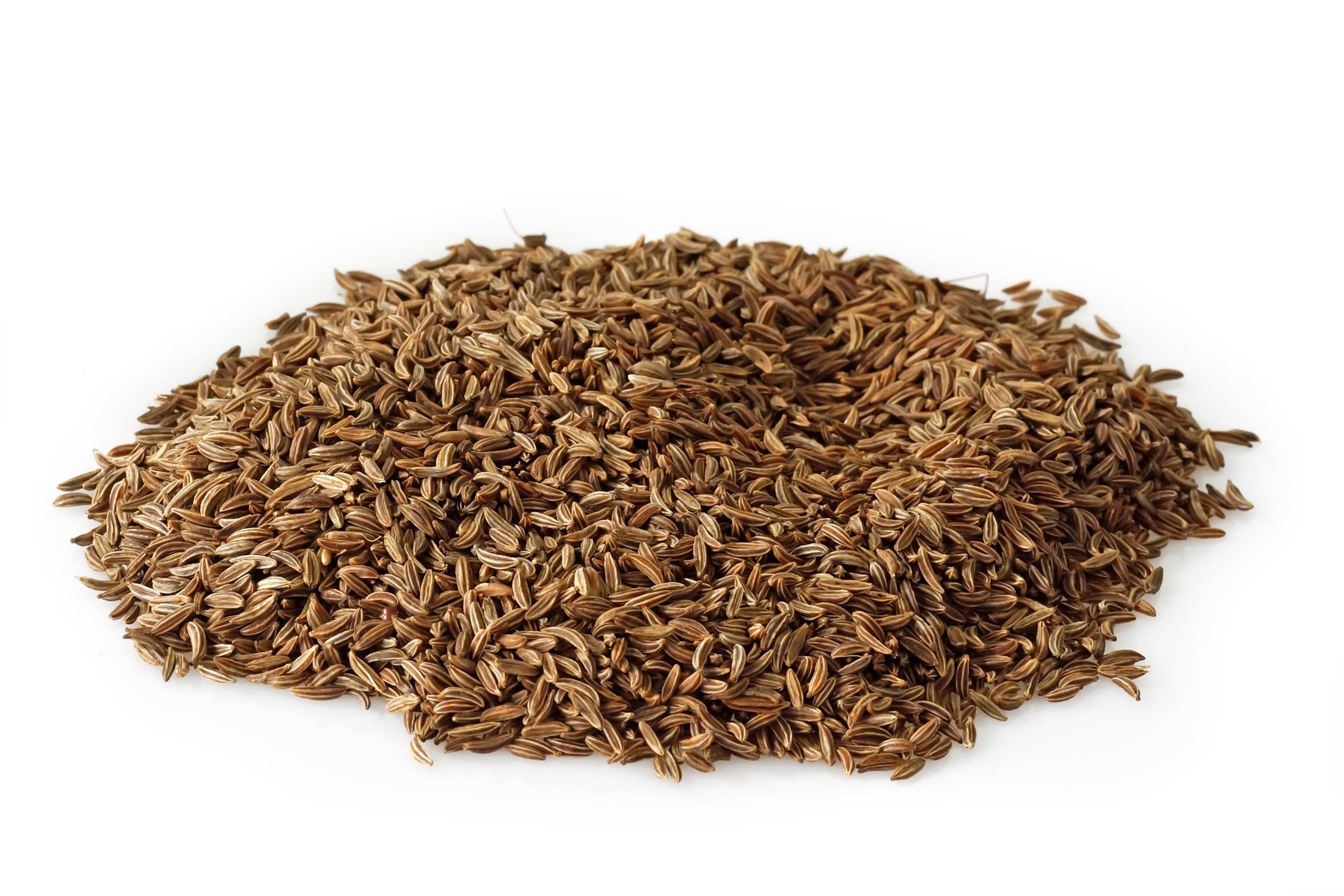Cumin is one of the best spices to therapeutically use for digestive disorders such as indigestion, dyspepsia, stomach cramps, gastritis, bloating, constipation, nausea, and flatulence. Cumin seeds contain good amounts of vitamins E, A and B-complex and is an excellent source of minerals such as zinc, selenium, iron, copper, calcium, and manganese.
Cumin helps the body absorb and assimilate nutrients much more efficiently. It also contains anti-cancer and anti-tumor properties and have beens shown to significantly reduce the risk of stomach, colon, and liver tumors. It has also been shown to detoxify the body by boosting liver and kidney function. It is known to help benefit colds, flu, insomnia, asthma, pneumonia, chronic bronchitis, muscle spasms, and arthritis.
Many of the health properties in cumin seeds are found in their essential oils which include cuminaldehyde and thymol. These compounds help to support healthy immune, respiratory, circulatory, reproductive, lymphatic, and digestive systems.
For pregnant woman and new mothers, cumin has been known to help relieve morning sickness and to strengthen milk production for breast feeding. Cumin seeds can be made in a tea by gently boiling two cups of water with 2-3 teaspoons of cumin seeds for 10 minutes or more. Allow to cool and sip throughout the day. Cumin tea is also excellent for weight loss as it can help to boost the metabolism and energize the body.
In biblical times, cumin seeds were highly valued for their digestive properties and were used during times of ceremonial fasting to help cleanse and purify the body. Topically, crushed cumin seeds or cumin powder can be mixed with coconut or olive oil and be applied to boils, scrapes, burns, and insect bites to help disinfect and soothe the skin. Consider finding new ways to add this healing spice into your weekly meals.
